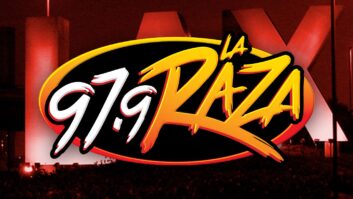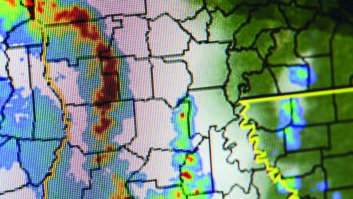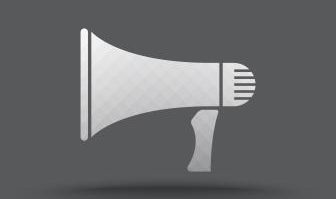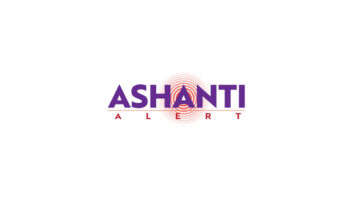
Commentaries by the Multicultural Media, Telecom and Internet Council are part of expert opinion and observations from various industry voices published regularly by Radio World.
This interview with MMTC President Emeritus and Senior Advisor David Honig was conducted by Meagan Sunn, MMTC Earle K. Moore Fellow-Designate for fall 2016.
MS: How are you, David?
DH: I am just fine, and privileged to be interviewed for Radio World.
MS: Why does the nation rely on radio in emergencies?
DH: Radio is often thought of as an old, and in many peoples’ minds, obsolete technology. You will find out in a hurricane, very quickly, that it is the best type of technology to have around. Here’s why.
The electric grid that powers most technologies, including wireline and wireless, can be disabled by one strike to the central location from which it is organized. Television can get knocked out because the receivers generally cannot operate with batteries. However, when the grid is down, radio stations can transmit with generators and be received with batteries. As such, radio — and only radio — can maintain electronic communications, even under very severe conditions.
MS: What happened in Hurricane Katrina in New Orleans in August 2005?
DH: In the wake of Hurricane Katrina, four major AM radio stations remained on the air. Right before Katrina hit, only one station, KGLA(AM), was broadcasting in Spanish. There were no stations broadcasting in Vietnamese. Over 100,000 people spoke only Spanish at home and 40,000 spoke only Vietnamese. Before, during, and after the hurricane, no information was broadcast in Vietnamese. Once KGLA was knocked off the air by the hurricane, there was no information available in Spanish for eight days.
The silence was not limited to radio. No media was available. There were no newspapers, no telephones, no wireless, no television. There was the same level of communications that there was 1,000 years ago, word of mouth. And there was very little of that, because there was no transportation.
Imagine, if you could, the worst possible conditions that people could ever face. There was water rising up to the second floor and above of peoples’ homes. Families were sitting on the roof, with no means of communication, other than battery-powered radios. They didn’t know how to get food or how to get medical care. Mothers and fathers didn’t know where their children were. Survivors wondered if the water was safe to drink, if they were going to be rescued. This basic, essential information was not being conveyed in their language. This was the most vulnerable that these people would ever be in their lives.
Then when the first responders finally reached their homes, the survivors didn’t know anything. Families were making decisions on life and death matters with no information. One Latino family, desperate for light and heat, didn’t know that they could not turn the gas on in their home. They lit a match and their home blew up. Four people died. There was no information, in their language, telling them that this was dangerous to do.
This happened because the English-language stations had no procedure or prior agreement to assign one of them to be a “designated hitter” that would provide information in Spanish. There was no plan. Once the one Spanish-language station went dark, 100,000 Spanish-speaking people were cut off from life-saving information.
That was unconscionable. It was morally wrong. And it was entirely preventable.
MS: What was the lesson learned in Katrina and what did MMTC do about it?
DH: Failure to warn Americans in their native languages will happen again unless the FCC does something about it. So MMTC, the Independent Spanish Broadcasters Association and the Office of Communication of the United Church of Christ filed an emergency petition with the FCC in September 2005, right after Katrina.
The petition asked the FCC to do something very simple. It asked the FCC to have broadcasters agree that in an emergency if there were no stations, or only one station in the market broadcasting in a widely spoken language other than English, they would designate an English language station, in advance, to allow a professional broadcaster or speaker to come to their station and provide information in other languages. There are over 4 million Americans, residing in 80 of the nation’s 273 radio markets, who are at risk in these instances.
This seemed to be a very modest, easy ask. We knew that broadcasters are good people. That is why they got into the business. It just seemed that this was not going to be hard. It did not seem to be heavy lift to ask broadcasters to yell fire in a crowded theater, if there actually was a fire! It is certainly not unreasonable to ask people to speak up for their neighbors in times of greatest need.
What happened next was quite a surprise.Over the course of 11 years, the FCC asked the industry three times what was being done to ensure that multilingual information would be available during emergencies. Not one state broadcast association came up with a plan. Many in the industry aggressively opposed the petition.
MS: Why did broadcasters oppose MMTC’s petition?
DH: The broadcasters complained that the proposed regulation would be the government telling them what to say. They argued that this policy would be an infringement on their “freedom” to go out of their way to say nothing to save lives during an emergency.
It just makes your hair stand on end reading some of this stuff. It reminded me of the Kitty Genovese case. Reportedly 38 of her neighbors watched as she was brutally stabbed to death in the street in 1964, and no one called for help or came to save her. It’s what has become known as the “bystander effect.” People take action when their families and friends are in danger, but not so much when strangers are.
MS: Should compliance be voluntary?
DH: When it became apparent that no one was going to step forward to volunteer to help, the question became whether the FCC was going to require stations to be “designated hitters” in emergencies. This did not seem to us, at the time, to be a heavy lift in emergency circumstances. “Designated hitters” are not controversial: it’s the plan used by the United States Army when a platoon takes a hill. If one soldier goes down, another has arranged in advance to take her place.
Everyone makes sacrifices in emergencies. No one has to tell police officers to do overtime. Public buildings immediately become shelters. Hospitals and clinics open their doors to everyone. Why are broadcasters allowed to decline to inform people of lifesaving information in an emergency? It just seemed surreal.
MS: What was wrong with the FCC’s ruling?
DH: After 11 years passed, the FCC finally issued a ruling denying the petition. History is not going to look favorably on this ruling. Twenty years from now, we will be scratching our heads in amazement.
The order was a model of selective omission of critical facts. In 2006, the commission’s own Katrina Advisory Committee unanimously endorsed relief similar to what was recommended in our petition. The order never mentioned that fact, or even the existence of the advisory committee.
The order made it seem as if MMTC was the only organization that favored the “designated hitter” solution proposed in the petition. In fact, 60 national organizations endorsed this relief. That was never mentioned in the order.
We asked that the FCC incentivize broadcasters to volunteer as a “designated hitter” in emergencies, by waiving regulatory and licensing fees. We also proposed that FCC make all broadcasters first responders. Neither of these proposals was mentioned in the order.
In addition to omitting significant facts, the commission’s decision was surprisingly sterile. It did not convey the moral issues. This petition was about the provision of information to people at their most vulnerable state. You don’t get a sense for that when you read this decision.
MS: What about the FCC’s ruling as it pertains to jurisdiction?
DH: To address the question of whether the FCC can require broadcasters to make these announcements and provide lifesaving information, in 2013 the Public Safety and Homeland Security Bureau asked that we file a Memorandum of Law. We filed one. The FCC never mentioned it, and concluded that there was no jurisdiction, without saying why.
MS: What actions did MMTC take once the order was entered?
DH: I have been practicing before the FCC since 1983. This is only the second time that I have seen an FCC order that omitted multiple, decisionally significant facts in the record that the commissioners needed to know before they voted. After the decision came out, we took the very unusual step to ask commission senior staff to withdraw the order as being fundamentally flawed.
Unfortunately, the commission did not do so, and now the order has been published in the Federal Register. It is a very sad day when we will have to go to a federal appeals court to compel the FCC to do this most essential part of its work, which is to ensure that our nation’s broadcast infrastructure is used to save lives.
MS: Any closing remarks?
DH: A broadcast license has great value. This is how the FCC protects incumbent licensees against others who would like to use the spectrum that they occupy. If a broadcast license means anything at all, it means that the station owner is willing to deliver to the most vulnerable people it serves the information they need to survive. As our President and CEO Kim Keenan has pointed out, “the penalty for an adult’s or child’s lack of English proficiency must never be death.”
Comment on this or any story using the Disqus tool below.
MMTC’s 14th Annual Access to Capital and Telecom Policy Conference will be held July 13–14, 2016 at the Westin Georgetown in Washington, D.C.












